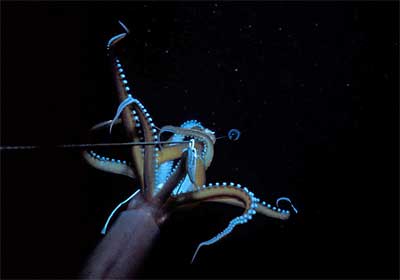I didn’t know that today was going to be a national day or mourning for Ronald Reagan until I took some books back to the library last night and saw the sign saying it would be closed today. I was surprised because it’s not as if Reagan was King or still president, and do we do this with all presidents? It’s been so long since a President died; I can’t remember.
My reaction to Reagan’s death this week was indifference. I was no more ‘mad’ about his tenure than I was going to jump on the wagon hailing him as our nation’s greatest leader. I don’t remember him as a particularly good leader, or a particularly bad leader. I do remember that many of us were uncomfortable with the the rumors going around towards the end of his presidency that his cabinet and his wife were providing more of the leadership of this country then we would like.
I hadn’t even planned on writing anything about Reagan’s death until I read a Christian Science Monitor article on Reagan’s passing. The article talks about the deep divides in this country, and how his death is providing a temporary respite from the acrimonious disputes:
While the bitter divisions in American politics circa 2004 do not reach Lincoln-era levels, they are much more pronounced than in Reagan’s day. Florida’s long ballot count, disputes over gay marriage and abortion, and widening gaps over the Iraq war have split the nation at every level, from the courts to the makeup of Congress. More than half of Americans now believe the country is on the wrong track.
Frankly, I think the divisions in this country are as strong as they were in Lincoln’s time; the primary difference is they lack the cohesiveness of that time because there is no single issue to rally around. No, not even the war on terror or Iraq is enough to cleanly divide the people and provide an impetus to act–other than vote this Fall. Frustrating, isn’t it? Having to wait to November.
I voted for Reagan his first election, but not his second. He was a good speaker, and did bring a sense of confidence into the White House. More importantly, being brought up to fear the great Communist conspiracy, I never felt ’safe’ with Carter. Happily, that election was the last time I let the boogie man control my vote.
Some are saying now that Reagan was one of the greatest presidents of our history, but I think these same people are forgetting all the controversy and anger and mistakes made during his tenure. I think they’re looking for a hero. And even people who don’t care much for Reagan are looking for something to ‘heal the rifts’, as if this is the most important thing we can do now.
Personally, I think we should face the issues polarizing us and acknowledge that on some issues, there is little or no middle ground. Though it does no good to get into a slapping fight, polite chit-chat in the interests of communal good makes me feel faintly ill. Does this sound confrontational? Confrontation is arguing with people you know you’ll never convince, just to hear your own lips flapping. Or getting frustrated because some people just don’t recognize the facts you find to be so glaring. People will see what they will see. Some people you can convince, some you can’t. Resolution does not equate to a national group hug, with kissing and making up afterwards.
But this is about Ronald Reagan and him dying this week. Folks are saying that Bush is going to benefit somehow from Reagan’s death. They say that Bush will tie himself to Reagan’s leadership style and hope to ride this uber-mourning to a victory in November. However, as I read in one opinion piece–it’s a long five months to the election.
I liked what Roger Benningfield had to say:
He was also charismatic, and was capable of coherent –sometimes even compelling– public speech. As we’ve learned over the last four years, those are two absolutely vital characteristics in a president. For all his faults, he spoke to the rest of the planet in a way that made even the nuttiest policies seem at least tolerable, while our current Executive Employee couldn’t give a dyslexic reading of the phone book without setting off riots in four different countries.
…when you distrust all politicians as much as I do, “he could have been worse” is a flash-flood of praise.
I am both sorry and happy for Ronald Reagan’s family, because his death must in a way be a relief. If his legacy is to help increase stem cell research, then there is good attached to his passing. Other than that, he was from a different era. That was then, this is now. And we don’t need more heros.







